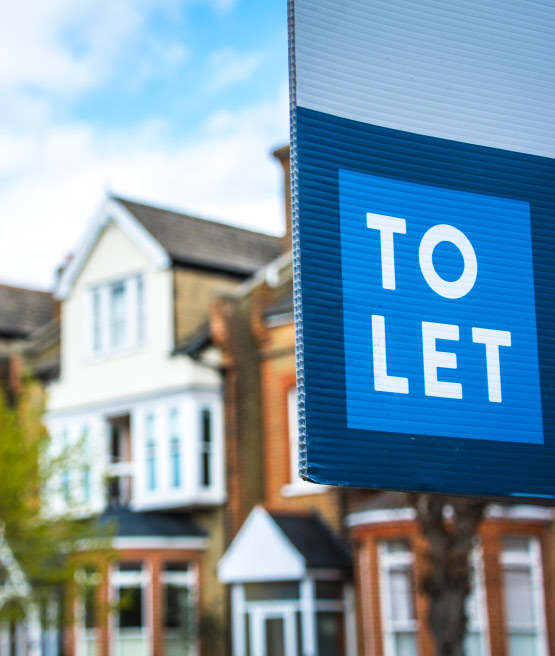In April 2016, The Energy Efficiency (Private Rented Property) Regulations 2015 brought into force Minimum Energy Efficiency Standards (MEES) in the residential Private Rented Sector (PRS). These standards apply to private rented domestic properties in England and Wales.
MEES regulations have been introduced by government to improve the energy efficiency and quality of private rented homes, in accordance with the UKs targets for decarbonisation.
Landlords and property agents are encouraged to act by commissioning an up-to-date Energy Performance Certificate which will identify the current rating (which may have changed over time), and recommend opportunities for improvement.
SEARCH FOR EPC ASSESSOR
Minimum Energy Efficiency Standards (MEES) for Domestic Properties
Since 1st April 2020, landlords can no longer let properties covered by the MEES Regulations if they have an EPC rating below E, unless they have a valid exemption in place. Landlords could face financial penalties of up to £5,000 for not meeting the minimum standards.
The government is due to release a consultation at the end of 2024, which will propose an uplift to the standard with it being raised to EPC rating C by 2030.
DOWNLOAD MEES FACTSHEET >Funding Improvements and Cost Cap
Domestic landlords must use their own funding to cover the cost of improving their property to EPC band E. This requirement is subject to a spending cap of £3,500 (inclusive of VAT) for each property and is only necessary when third party funding is unavailable. ‘High Cost’ and ‘All Improvements Made’ exemptions can come into play here.
Landlords may be able to secure some third-party funding, but it might not be enough to improve their property to EPC band E. In this case regulations stipulate that landlords must top up this third party funding with funding from their own pockets, provided that the combined value is less than the £3,500 (incl VAT). An example of this is provided below:
|
Property requiring £3.5k of investment to reach EPC Rating E |
|
| Third party funding available | Landlord contribution required |
| £3.5k | £0 |
| £2k | £1.5k |
| £0 | £3.5k |
Domestic MEES Exemptions
Landlords could register an exemption in order to remain compliant with MEES regulation, despite their property not meeting the standards required. Landlords are only exempt from the PRS Exemptions Register if they have longstanding tenants where their 10-year EPC expired before 1st April 2018.
All exemptions last 5 years except the exemption: recently becoming a landlord, which lasts for only 6 months. Unlike an EPC that stays with a property, an exemption does not. It is linked to the landlord who registered the exemption, so if a new landlord comes into the property, they will need to re-register the exemption.
To register an exemption you will need:
- the address of the relevant rental property
- which exemption type is being applied
- a copy of a valid Energy Performance Certificate for the property.
The government’s full guidance on MEES exemptions can be found here.
REGISTER AN EXEMPTIONDomestic landlords must use their own funding to cover the cost of improving their property to EPC band E. This requirement is subject to a spending cap of £3,500 (inclusive of VAT) for each property and is only necessary when third party funding is unavailable.
This cap applies to the overall cost of improving the property and is not a cap applied to individual measures. Landlords only need to fund what they need, to improve the property to Band E.
If the cost of making even a single improvement to the property is more than this cap then a High Cost exemption can be registered. Landlords would need to submit 3 quotes from installers to evidence this.
The current governement has indicated that with proposed changes to MEES Regulations in 2030 it may raise the cost cap to £10,000 in the future.
Where all recommended improvement measures for the property have been made (or there are non that can be made), but the property remains below an EPC E rating.
Landlords will need to supply details of energy efficiency improvement recommended for the property in recommendations report/report by a chartered surveyor.
Details will also be required to prove all measures have been tried to bring property into compliance with the regulations.
Certain wall insulation systems may not be suitable in certain situations, even where they have been recommended for a property,
A copy of written opinion from a relevant expert is required here, which states that a property cannot be improved to an E rating because the recommended wall insulation measure would have a negative impact on the property (this mainly applies to listed buildings).
Certain energy efficiency improvements may require third party consent before they are installed in the property. This may be required from a tenant, local authority, mortgage lenders etc.
Landlords will need to supply a copy of any correspondence demonstrating the consent for energy efficiency measure was required and sought ,and this consent was refused in order to register for this exemption.
Where all the recommended energy efficiency measures would lead to the property being devalued.
An independent RICS surveyor would need to provide a report which confirms that the installation of a measure would devalue the property by more than 5%.
This is considered to be a temporary exemption which only last 6 month’s. This exemption applies where the individual has become a landlord “suddenly”
When registering this exemption, the landlord must provide the date on which they became the landlord for the property, and a narrative explanation of the circumstances under which they became the landlord

Funding For Homeowners
There are a number of government schemes and grants dedicated to helping homeowners afford improvements to their homes.
Click the button below for more information on the funding opportunities available.
FIND OUT MORE >Further Resources for Minimum Energy Efficiency Standards
Helpful Links:
- Domestic private rented property: Minimum Energy Efficiency Standards (MEES) – landlord guidance – https://www.gov.uk/guidance/domestic-private-rented-property-minimum-energy-efficiency-standard-landlord-guidance
- Energy Performance Certificates guidance – https://www.gov.uk/government/collections/energy-performance-certificates
Related News:
- November 2023: Heat Strategy for Wales: Broadening the Vision to Encompass Energy Efficiency – https://www.elmhurstenergy.co.uk/blog/2023/11/22/heat-strategy-for-wales-consultation-response/
- May 2022: What is going on with Domestic Minimum Energy Efficiency Standards (MEES)? – https://www.elmhurstenergy.co.uk/blog/2022/08/03/what-is-going-on-with-domestic-mees/
